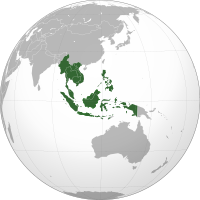
Photo from wikipedia
ABSTRACT Over the last three decades, we have widely witnessed the peculiar relationship between tourism and incidents of political instability. Responding to the urgent call for additional empirical inquiries, we… Click to show full abstract
ABSTRACT Over the last three decades, we have widely witnessed the peculiar relationship between tourism and incidents of political instability. Responding to the urgent call for additional empirical inquiries, we conducted an econometric study, using the VAR-EGARCH-DCC model, on the regional tourism interdependency (volatility) between four Eastern Mediterranean countries, namely Greece, Turkey, Cyprus and Israel. Monthly arrival data from 1987 to 2012, along with a series of political instability variables collected from machine-coded databases, were utilized to model effects and to add empirical substance to contemporary and emerging theories. Our findings are relevant to industry stakeholders in that they explore tourism demand and volatilities. The findings indicate a positive effect on tourism demand in the presence of verbal or material cooperation between a destination country and others. In contrast, when investigating verbal conflict between a destination country and others, our findings reveal a negative impact on tourist arrivals and an increase in volatility in the destination country. Finally, in our investigation of incidents of material conflict, we saw a strong negative impact on tourist arrivals in all four destinations, accompanied by a significant increase in volatility.
Journal Title: Defence and Peace Economics
Year Published: 2020
Link to full text (if available)
Share on Social Media: Sign Up to like & get
recommendations!